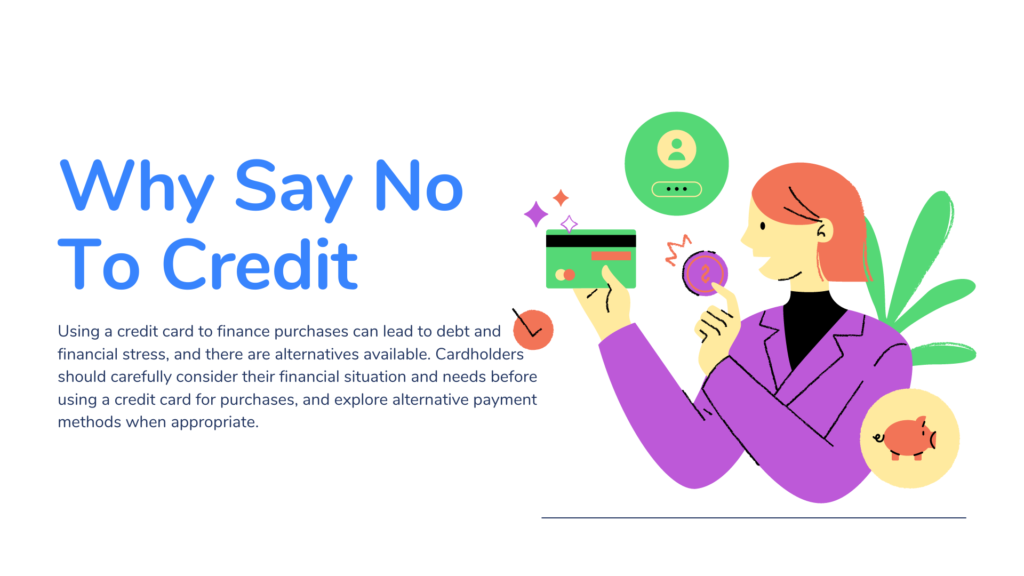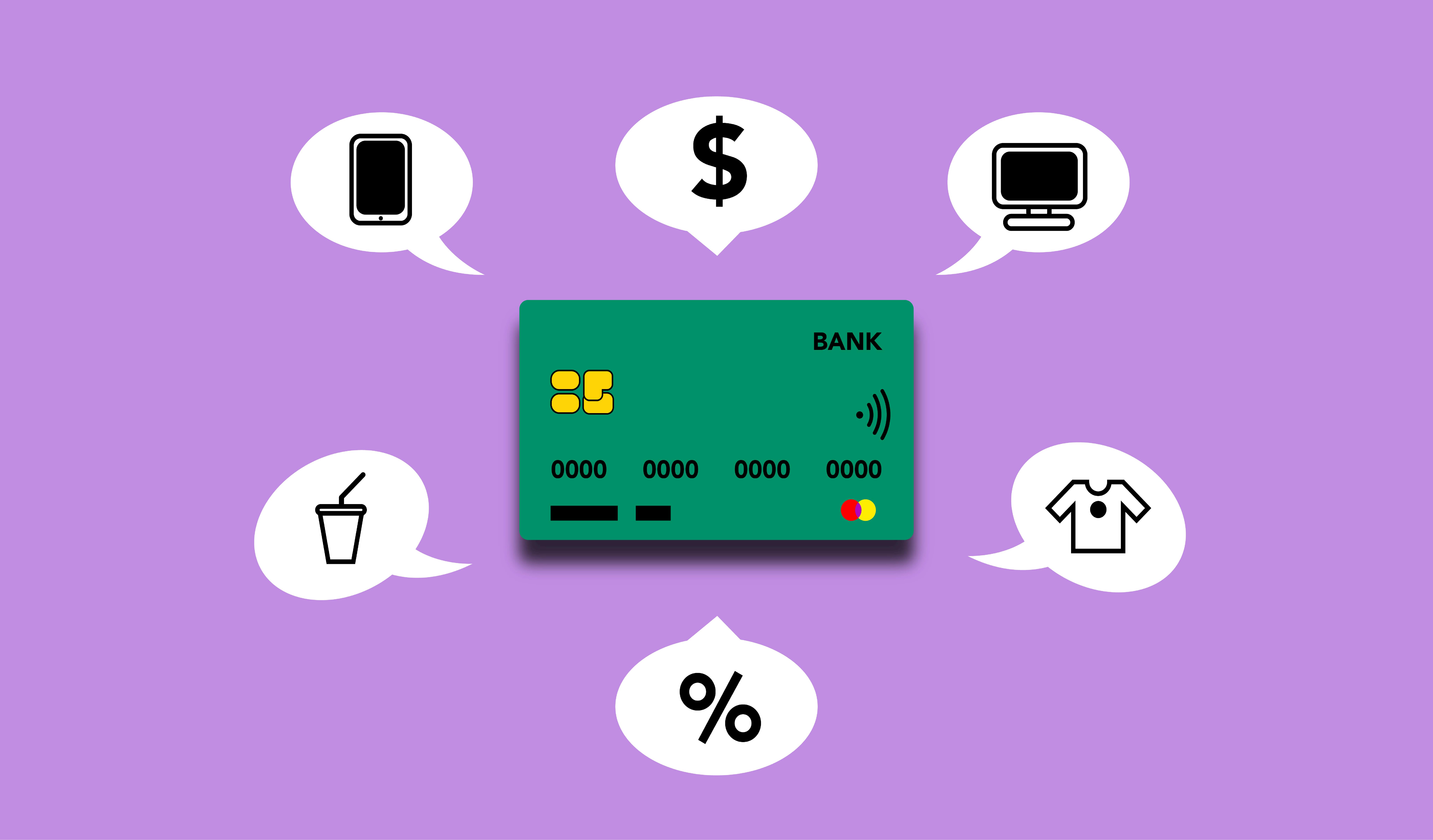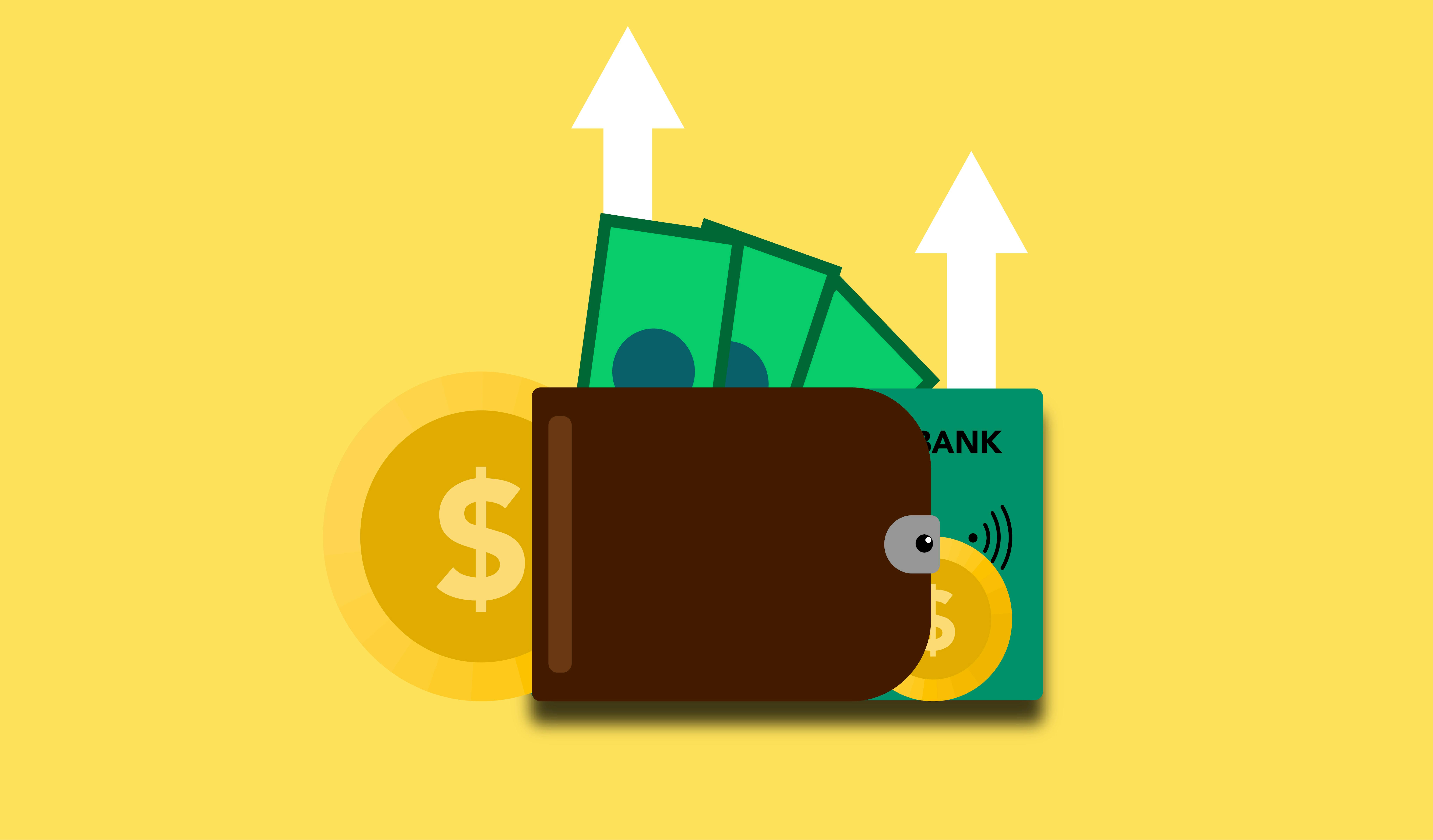Credit cards have become a common way of financing purchases in today’s world. They offer a convenient way to pay for goods and services, as well as many benefits such as cashback rewards, airline miles, and points that can be redeemed for merchandise or services. However, not all reasons for using a credit card to finance purchases are positive. In this article, we will discuss the reasons why using a credit card may not be a good idea.
KEY TAKEAWAYS
My Finance Bot
- Credit cards can be useful for making purchases, but they also come with potential drawbacks.
- High interest rates, late payment fees, and overspending are all negative consequences of using credit cards.
- Cash advances and impulse buying can also lead to financial stress and debt.
- Credit card fraud and identity theft are important risks to be aware of when using credit cards.
- Alternatives to credit cards include debit cards, cash, and budgeting tools.
- When using credit cards, it is important to be responsible and make timely payments to avoid fees and negative impacts on credit scores.
Which is not a positive reason for using a credit card to finance purchases?
- Overspending
- High interest rates
- Late payment fees and penalties
- Credit card debt leading to financial stress
- Impulse buying
- Credit card fraud and identity theft

The convenience of using a credit card
One of the main reasons why people use credit cards is for the convenience they offer. Credit cards allow you to pay for goods and services without carrying cash, which can be a hassle and a security risk. They also allow you to make purchases online and over the phone, which can be difficult or impossible with cash or a debit card.
Credit cards offer rewards
Using a credit card for purchases can be a smart financial move, especially if you choose a card that offers rewards. lets discuss how credit card rewards work and the benefits they offer.
- Cashback Rewards: Many credit cards offer cashback rewards, which give you a percentage of your purchases back in cash. For example, a card might offer 2% cashback on all purchases or 5% cashback on certain categories, such as gas or groceries. These rewards can add up quickly and can be a great way to save money over time.
- Airline Miles and Travel Rewards: If you enjoy traveling, a credit card that offers airline miles or other travel rewards can be a great choice. These cards allow you to earn points or miles for your purchases, which can be redeemed for flights, hotel stays, and other travel expenses. Some cards even offer perks such as free checked bags or airport lounge access.
- Points for Merchandise or Services: Some credit cards offer points that can be redeemed for merchandise or services. For example, you might be able to use your points to purchase electronics, gift cards, or even experiences like concert tickets or spa treatments. This can be a great way to treat yourself or purchase items you might not otherwise be able to afford.
It’s important to remember that credit card rewards should be used responsibly. Don’t overspend just to earn rewards, and always pay your balance in full each month to avoid interest charges. With the right strategy, credit card rewards can be a valuable tool for saving money and enjoying perks.
Credit cards can help you build credit
Using a credit card responsibly can also help you build credit. Credit card companies report your payment history to the credit bureaus, which can help you establish and maintain a good credit score. This can be important when applying for loans, mortgages, or other forms of credit in the future.
Credit cards provide purchase protection
Using a credit card to make purchases provides not just convenience, but also purchase protection. If a cardholder’s property is damaged, lost, or stolen, he or she may be able to file a claim with the credit card issuer to be compensated for the item’s cost. This benefit is especially useful for high-value products such as electronics or jewels.
To take advantage of this protection, the cardholder should review their credit card’s terms and conditions and contact their issuer as soon as possible after the occurrence occurs. Some credit cards may have limitations or exclusions, so read the fine print carefully.
Having purchase protection through a credit card can provide peace of mind when making big purchases, knowing that the financial investment is safeguarded in case of unexpected circumstances.
Credit cards offer cash advances
Credit cards may also provide cash advances, which allow the cardholder to withdraw money from an ATM or bank. This capability can be useful in an emergency or when quick access to funds is required. It is crucial to note, however, that cash advances often have high interest rates and costs, making them an expensive option.

Alternatives to cash advances, such as personal loans or borrowing from a friend or family member, may provide reduced interest rates and costs. If a cash advance is required, it is critical to pay off the sum as quickly as possible in order to reduce the amount of interest charged.
Credit cards can lead to overspending
One potential downside of using credit cards is that they can lead to overspending. It can be tempting to spend above one’s means with the simplicity of making purchases and the opportunity to defer payment.
Cardholders should make a budget and keep track of their expenses to avoid overspending. It is also critical to pay the balance in full each month to prevent interest charges. Furthermore, cardholders should be wary of credit card reward programs that encourage excessive spending.
Credit card interest rates can be high
Interest rates on credit cards are typically higher than other forms of credit, such as personal loans or mortgages.
Cardholders should attempt to pay off their debt in full each month to avoid paying exorbitant interest rates. If they must carry a burden, they should look into transferring the balance to a card with a reduced interest rate or considering a personal loan with a lower interest rate.
Cardholders must comprehend their credit card’s terms and conditions, including the interest rate and any fees that may be levied. Cardholders can select the finest credit card for their financial condition by shopping around for credit cards and comparing interest rates and terms.
Late payment fees and penalties
credit card late payment fees and penalties can be costly and have long-term financial consequences. Cardholders should make payments on time, set up automatic payments or reminders, and pay the minimum amount as soon as possible if a payment is missed.
Credit card debt can lead to financial stress and impulse buying
If a cardholder carries a balance on their credit card and is unable to pay it off, interest charges can quickly accumulate and lead to a debt cycle.
Cardholders should only use their credit cards for necessary costs and avoid impulse purchases to avoid credit card debt and financial hardship. Making a budget and keeping track of costs will assist cardholders in staying on top of their money and avoiding overspending.

Cardholders should aim to pay off their credit card balances in full each month to avoid interest charges. If carrying a balance is necessary, cardholders should make a plan to pay it off as quickly as possible and explore options for transferring the balance to a card with a lower interest rate.
Credit card fraud and identity theft
Credit card fraud and identity theft are severe dangers of using credit cards. If a cardholder’s information is hacked, fraudulent purchases on their account can occur, resulting in cash losses and credit score harm.
To avoid credit card fraud and identity theft, cardholders should secure their personal information and regularly monitor their account activity. Using secure passwords, avoiding public Wi-Fi while making online purchases, and scrutinizing statements for any fraudulent activities are all examples.
Using credit cards responsibly
cardholders should use their credit cards responsibly by avoiding overspending, making payments on time, and paying off balances in full each month. This can help build good credit and avoid long-term financial consequences.
Alternatives to using credit cards
There are alternatives to using credit cards to finance purchases, such as using a debit card or cash. Debit cards allow consumers to access funds directly from their bank accounts, avoiding the risk of incurring debt. Cash can also be a useful alternative for budgeting and tracking expenses, as it provides a tangible reminder of how much money is being spent.
Additional Resources
- How to Improve Your Credit Score
- Which of the following is not a positive benefit of credit cards?: https://homework.study.com/explanation/which-of-the-following-is-not-an-advantage-of-having-a-credit-card-a-it-is-safer-than-carrying-large-amounts-of-cash-b-regular-payments-provide-a-good-credit-history-c-it-enables-people-to-obtain-necessary-items-immediately-and-pay-later-d-it-ofte.html
FAQs
What are some positive reasons to use a credit card?
Credit cards can offer benefits such as rewards programs, purchase protection, and the ability to build credit when used responsibly.
Can using a credit card help me build credit?
Yes, using a credit card responsibly by making payments on time and keeping balances low can help build good credit.
How do credit card rewards work?
Credit card rewards programs offer incentives such as cashback, points, or miles for making purchases on the card. These rewards can often be redeemed for travel, merchandise, or statement credits.
What should I do if I am unable to pay my credit card bill?
If you are unable to pay your credit card bill, you should contact your credit card company to discuss payment options and avoid late fees or damage to your credit score.
Are there any downsides to using a debit card instead of a credit card?
While debit cards can be a useful alternative to credit cards for budgeting and avoiding debt, they may not offer the same benefits such as rewards programs or purchase protection. Additionally, debit card fraud can lead to funds being frozen in a bank account until the issue is resolved.
Which is not a positive benefit of credit cards?
The disadvantages of credit cards include the ability to quickly overspend, which can lead to significant debt if not paid in full, as well as credit score damage if payments are missed.
What is a positive reason to use a credit card to finance purchases?
Credit cards are excellent instruments for building credit over time. Your credit score has a significant impact on your financial life. With excellent credit, you will be more likely to qualify for future loans, such as vehicle loans and mortgages.
The Bottom Line
Using a credit card to finance purchases can lead to debt and financial stress, and there are alternatives available. Cardholders should carefully consider their financial situation and needs before using a credit card for purchases, and explore alternative payment methods when appropriate.